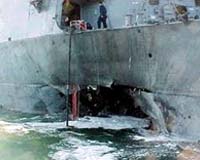| . |  |
. |
Washington (AFP) Jan 6, 2010 Afghanistan and Iraq on Wednesday joined a chorus of protest over a new US watchlist targeting visitors from 14 countries, describing the measure as ineffective and "counterproductive." "I think it is unfair," said Samir Sumadaie, Iraq's ambassador to the United States. "And more important than being fair or unfair is whether it is actually going to work." "If you treat the entire populations of so many countries as suspects with one blanket decision it is counterproductive," he said. "It tends to alienate people and its very, very doubtful that it will produce any significant increase in the security of air travelers." Said Jawad, Afghanistan's ambassador to the United States, echoed those concerns. "It's unfair to single out all Afghans for extreme scrutiny," he said in a statement emailed to AFP. "We must not let our fear force a missed opportunity to produce meaningful security measures which don't ostracize innocent travelers, brings us all closer to fighting a common enemy and allows everyone to travel the globe in relative safety," he said. The new Transportation Security Administration watchlist requires passengers who are citizens of 14 designated countries, or are travelling via those nations, to undergo special security screening. The measure was announced in the wake of a failed attack on Christmas Day by 23-year-old Nigerian Umar Farouk Abdulmutallab, who attempted to bring down a Northwest Airlines flight by detonating explosives hidden in his underwear. But Sumadaie pointed out additional screening would not have been necessary to catch Abdulmutallab as the US government already had intelligence that could have led to his arrest. "Improving the use of intelligence is obviously a much more direct means of identifying the real threat. Not everybody is a threat," he said. The Iraqi ambassador said he had expressed strong concerns about the new measure to the State Department. Other countries on the watchlist earlier protested their inclusion. "We categorically reject this new hostile action by the government of the United States that stems from the unfair inclusion of Cuba in the so-called list of countries supporting terrorism," Cuba's foreign ministry said Tuesday. The ministry said it had summoned Jonathan Farrar, who heads the US Interest Section at the Swiss embassy in Havana, to spell out Cuban objections Abdulmutallab's homeland Nigeria was also placed on the list, prompting the government in Abuja to warn Wednesday of a diplomatic rift. Nigeria "views this action as having the potential of undermining long-standing and established US-Nigeria bilateral ties and the goodwill the US enjoys in Nigeria," a statement released after a cabinet meeting said. Among the countries on the new directive are US-designated state sponsors of terrorism Cuba, Iran, Sudan and Syria. Also targeted are Algeria, Iraq, Lebanon, Libya, Pakistan, Saudi Arabia, Somalia, Yemen and Nigeria. The new rules has also been criticized by advocacy groups, who warn they will lead to profiling and disproportionate targeting of particular racial, ethnic and religious groups. In a statement, the Arab-American Anti-Discrimination Committee said it was "troubled" by the directives because a "disparate segment of the Arab-American community will be scrutinized." "The blanket labeling of hundreds of millions of civilians based solely on their country of citizenship or travel is not only unfairly discriminatory based on national origin, but also improperly labels millions of innocent people as somehow suspect or possible terrorists," the group added. A coalition of South Asian organizations also protested the measures, saying they "continue a pattern of profiling that our communities have endured since September 11, 2001." "Moreover, the measures promote existing misperceptions about these communities as threats to security and harm the US government's reputation, both domestically and abroad, towards ensuring civil rights and equality," the groups said in a statement.
Share This Article With Planet Earth
Related Links The Long War - Doctrine and Application
 Commentary: Mad Max Redux
Commentary: Mad Max ReduxWashington (UPI) Jan 6, 2009 Yemen, where al-Qaida in the Arabian Peninsula has several hundred jihadi terrorists sheltered by anti-Saudi tribal chiefs, has been getting less than $70 million a year in U.S. assistance. Afghanistan, whence Arab jihadis decamped years ago, runs U.S. taxpayers $82 million a day. The would-be Nigerian suicide bomber Umaru Farouk Abdulmutallab, 23, who tried to kill 300 passengers on Christmas ... read more |
|
| The content herein, unless otherwise known to be public domain, are Copyright 1995-2009 - SpaceDaily. AFP and UPI Wire Stories are copyright Agence France-Presse and United Press International. ESA Portal Reports are copyright European Space Agency. All NASA sourced material is public domain. Additional copyrights may apply in whole or part to other bona fide parties. Advertising does not imply endorsement,agreement or approval of any opinions, statements or information provided by SpaceDaily on any Web page published or hosted by SpaceDaily. Privacy Statement |